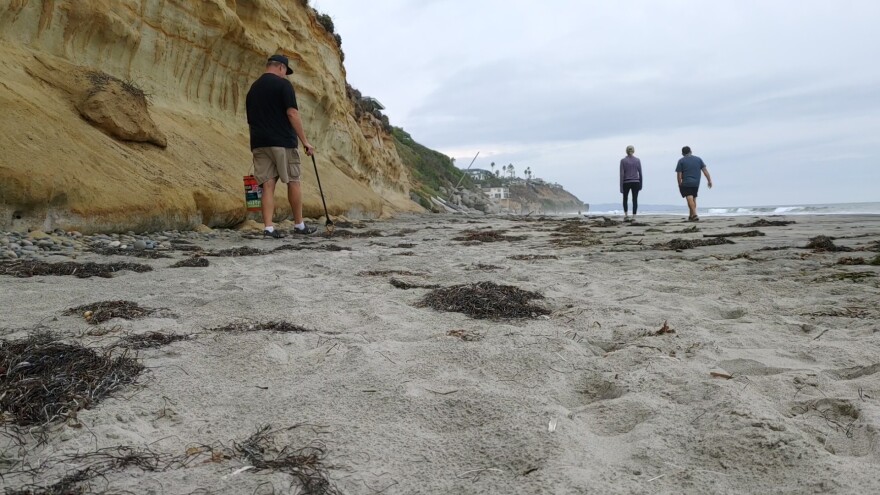A new national report by the Surfrider Foundation found that California continues to lead the nation when it comes to coastal policies that account for imminent climate change impacts.
The study graded the performance of 30 U.S. coastal and Great Lake states. The report included Puerto Rico.
Overall, 11 states earned a grade of “A” or “B” which demonstrates they are doing a good or better job of protecting their coastline. That is up from eight in last year’s report.
California has 1,100 miles of coastline that range from rocky cliffs to wide beaches.
RELATED: Massive sewage flow fouls South Bay beaches
The state’s coastal zone is already feeling the impact of a warming climate with sea level rise and storms putting pressure on the region.
“The climate crisis is bearing down on us,” said Stefanie Sekich-Quinn, a member of Surfrider Foundation’s San Diego chapter. “Just this past year we’ve seen tremendous amounts of severe weather events and unfortunate problems. So really it comes down to being more proactive.”
The Surfrider State of the Beach report gave California top marks for dealing with sediment management, development and sea level rise.
The overall grade was an A, but the state was not perfect because California got dinged down a notch for the way it manages seawalls.
The report found the state put a limit on the construction of new sea walls and the repair of existing ones. However, the California Coastal Commission continues to approve emergency permits for temporary coastal armoring structures.
RELATED: Climate Change Raises Risk For Outdoor Workers
The Surfrider Foundation says there are three reasons why California has public policies that that put it at the top of the report card. It is work by the Coastal Commission, the legislature and the governor.
“It is the progressive nature of those three different entities that are constantly propelling California forward so that we manage our coastlines properly,” Sekich-Quinn said.
Maine and Maryland were the two other states to get A rankings.
Regionally the West Coast and Northeast got B grades. The mid-Atlantic, islands and the Southeast got ratings of C. The Great Lakes and Gulf of Mexico region held D ratings.
The report finds the federal government is doing a good job of upholding climate policies that were rolled back under the Trump administration. It also praised the U.S. move to rejoin the Paris Climate Accords.
RELATED: San Diego Climate Advocates Push For Green New Deal
The Surfrider Foundation urges people to not rely on government agencies to do the right thing.
“The average citizen can go to their local town or city council and say, 'Please don’t build in harms way anymore. Please update the laws that are on the books so we’re being proactive with climate change,'” said Sekich-Quinn.
The group sees citizen action as an important part of the process of protecting the coast.







